QuestionI adopted a 3-year old male from the shelter this past May after one of my cats passed away. I did a gradual introduction, but when it was time for him to meet my 5-year old female, they locked into each other and the fur flew. I have tried Feliway diffusers and spray, Bach's Rescue Remedy, but nothing works. The little male has taken over the house and my female has been living under the bed or under the couch. He will not let her come out to use the litter box. They now have a routine where he usually sleeps upstairs and she walks around, but if he catches her, he stalks her and beats her up. No blood shed, but she is frightened. She will fight back but retreats under the couch. At night I put him in the basement so she can have full run of the house without fear, and use the litter box. She now has anxiety issues with the litter box (excessive scratching). I think prozac is my only option for him other than taking him back to the shelter, which I don't wantto do. I want to know what are the side effects and is there any other option? Should I put them both on it?
Thanks.
Answer
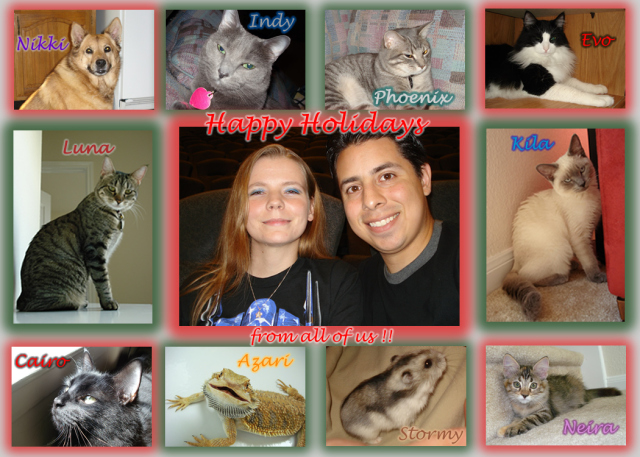 My Pets
My Pets
Hi Nancy,
I'm sorry to say, but this is what commonly occurs when there is a mismatch of personalities between resident cats in the home, and this comes from there being nowhere near enough qualified cat behaviorists in shelters or really anywhere to give you the proper advice. The truth of the matter is that you have two cats that are on the polar opposite ends of the temperament spectrum, and the male needs to be rehomed. Period. As hard as that is for you to hear, not all cats are good matches for each other, and this is part of what I advise about to anyone who contacts me regarding my fosters. One of the first things I go over is there pets at home and ask them probing questions to determine the personality and energy level of each so that I can be sure that my foster has the right temperament to fit into their home.
It is my strong opinion that 95% of medications prescribed by vets are avoidable and unnecessary. Everything should be approached first through a behavioral standpoint as the issue you have is in point of fact behavioral and not due to environmental factors assuming he is neutered and not declawed. Medication should always be a last resort. I could go over the detailed instructions I give people for dealing with excessively dominant cats, however you will be fighting a series of uphill battles. He was already three years old when you adopted him, which I applaud you for adopting an adult, but because of this, his dominant behavior has been both reinforced and usually aggravated by people who don't understand dominance and how to deal with it properly for three years of his life. He will need hours of behavioral modification per day, and *must* be kept separate from your female at all times until months down the road when he has made enough progress to begin slow reintroductions. I don't know if you have the time, energy, or patience for this, and honestly, if you have to return him to the shelter, you should not feel bad because there should be someone there who knew that this cat was severely dominant and advised you about it.
Shelters do the best the can with what they have, but it sounds to me as though he was a cat that should not have been adopted out. Now do understand that I have worked in a variety of animal care fields and was the Cat Adoptions Team Leader for a shelter in Texas. I know cats and train each of my six as well as forty four fosters who have had a variety of medical and behavioral conditions, and I'm telling you, I have had two fosters who were so dominant that even though I had them as kittens (one I got at 5 weeks and the other at one week) it took me four months of consistent positive training by someone experienced with behavior to bring them down to an intermediate level. So I'm telling you, he could be months and even years of work, and I'm sorry, but I do not believe something like Prozac is ever the solution. He needs to be in a home where he is the only cat and the person is retired or works from home or is a stay at home mom to have plenty of time to work with him, and at that, they need to understand feline behavior and dominance and that you can never be aggressive or physical with a dominant/aggressive cat as it only begets aggression. And very few people possess all of this who are looking to adopt an adult from a shelter.
Bottom line, do not feel bad as this was not your burden to bear. You were not qualified or able to deal with such a special needs cat, and I don't blame you in the least. Adoption should never be taken lightly, but in this case, you were not (nor it seems were they) fully aware of his issues and needs. Call the shelter, tell them about the issues your having and that you don't think it will work out. Most shelters will give you 30 or 60 days to adopt another cat, and I recommend you take that time to work with your female and build her confidence back up and reaffirm her bond with you so she feels comfortable, and then and only then look to adopting another low-keyed, calm loving cat. Do not be fooled into thinking you need to get a male when you have a female--it's all about matching personalities. I have six cats, five are female and one is male. When they are altered (as they should always be), sex is irrelevant. Personalities are as follows:
INDY - Spayed female - Russian Blue mix - Rescued from irresponsible owner at 5 weeks
--Even-tempered, Independent, sensitive (Reserved as kitten)
PHOENIX - Spayed female - Siberian mix - Rescued from barn at 4 weeks
--Dominant, active, stubborn (Highly dominant as kitten)
EVO - Neutered male - Norwegian Forest Cat - Rescued from shelter at 3.5 months
--Submissive, affectionate, silly (Distrustful and timid as kitten)
LUNA - Spayed female - Manx/Maine Coon - Rescued from barn at 8 weeks
--Submissive, very loving, sensitive (Highly reserved and timid as kitten)
*Luna was psychologically scarred because she was picked up by a Rottweiler at 4 weeks old and then forced to live at the barn where dogs come and go 24/7
KILA - Spayed female - Tonkinese mix - Rescued from shelter at 9 weeks
--Semi-dominant, bold, headstrong, loving (Bold and fearless as kitten)
NEIRA - Spayed Female - Maine Coon - Rescued from car dealership at 2.5 weeks old
--Even-tempered, affectionate, sensitive (Highly reserved and fearful as kitten)
Basically, I work with each to bring them to an even keel so everyone gets along and is a social, well-behaved cat. I build up the confidence and trust with reserved cats, and teach dominant ones with structure and consistent positive reinforcement and direction to curb any behaviors that originate as dominance that will become aggressive if not addressed properly and from an early age.
As you can see, I only have one truly dominant cat, but I rescued her when she was 4 weeks old and have done consistent behavioral modification since that time. They all get along because I teach them what behavior is and is not allowed. I don't care what their personality, no one is ever allowed to bully or stalk the other. People also commonly get physical with their cats when one hisses at the other, but this is the way they communicate. If one is hissing at another, it's usually for a reason that needs addressing, and you should do so, but in a calm, positive way. Well, I could go on and on, so please utilitize this information for now and let me know if you have any further questions, and I will be happy to answer them. Best of luck, and thank you for opening your heart to rescuing an adult cat from a shelter. I'm just sorry it was a bad match for your home, and hope you won't let it sour your view of the shelter or adoption in general.
Best regards,
Holly Martin
Cat Care & Behavior Specialist
Texas A&M University
B.S. Animal Science
P.S. I am attaching the image I created for a Christmas card of all of my pets so you can put their names to their faces. Cairo was my spouse's cat and Luna's brother that we had to put down earlier this year.


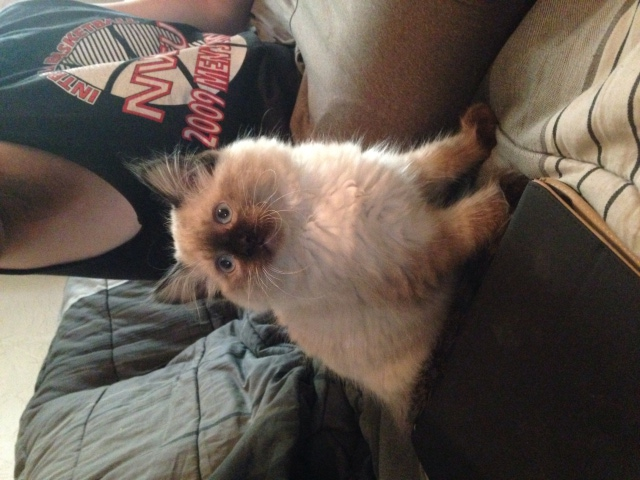 What kind of cat do I have? What should I breed her with?
Question
What kind?
The people we got my cat fro
What kind of cat do I have? What should I breed her with?
Question
What kind?
The people we got my cat fro
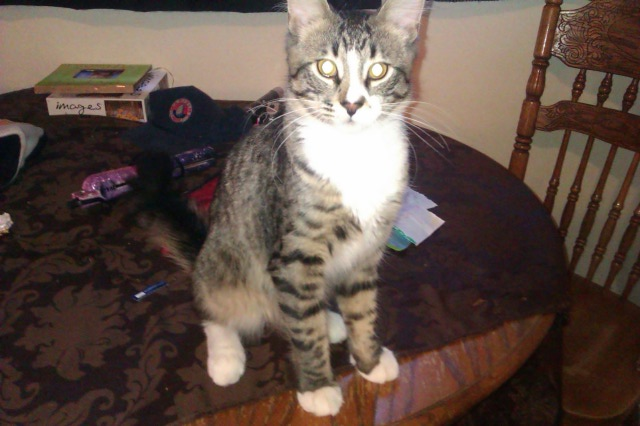 What Breed Is My Cat ??
Question
Cloud1 Cloud2
Hey, my boyfriend a
What Breed Is My Cat ??
Question
Cloud1 Cloud2
Hey, my boyfriend a
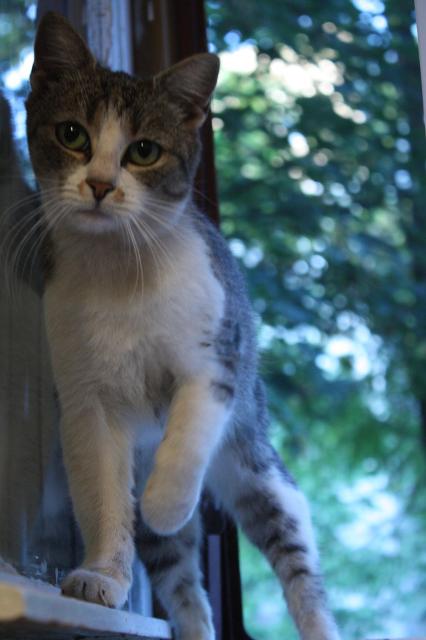 Cat meaowing after spayed
QuestionQUESTION: Hello, I am having a problem with my
Cat meaowing after spayed
QuestionQUESTION: Hello, I am having a problem with my
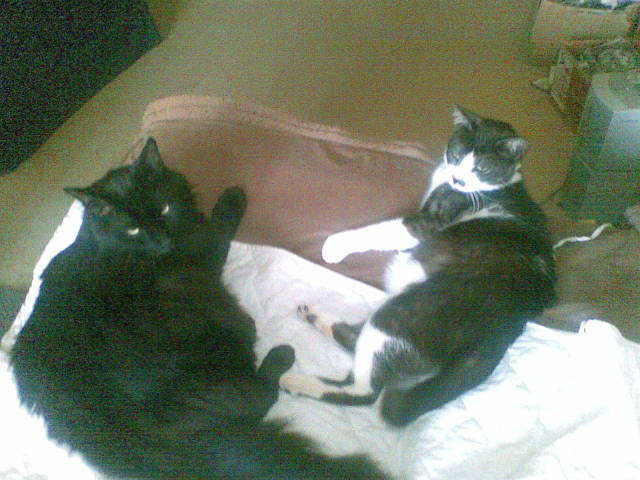 3x week visiting cat
Question
banjo and Joppy
Hi thanks for maybe bei
3x week visiting cat
Question
banjo and Joppy
Hi thanks for maybe bei
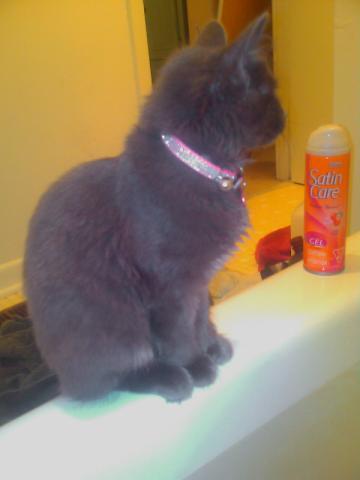 urgent cat problem
Question
kitty aka chanel
my cat is about 7 mont
urgent cat problem
Question
kitty aka chanel
my cat is about 7 mont